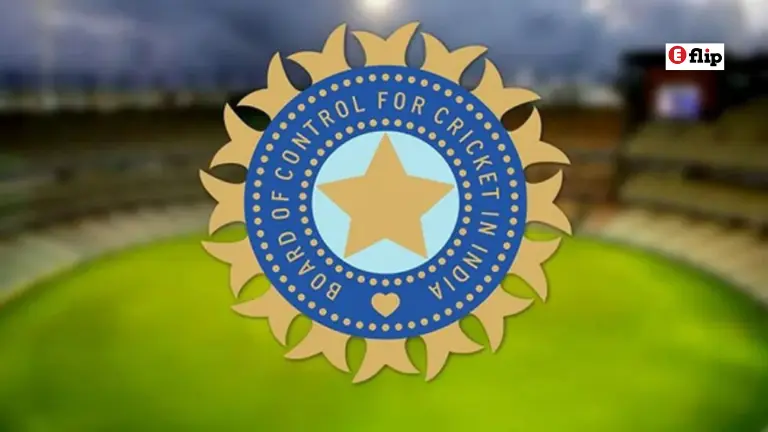Cricket, often called a religion in India, thrives on passion, skill, and integrity. But every so often, a dark cloud looms over the sport, threatening its sanctity. The recent news of an ex-India star being approached for match-fixing in the Mumbai T20 League has sent shockwaves through the cricketing world. The Board of Control for Cricket in India (BCCI) acted swiftly, imposing a lifetime ban on Gurmeet Singh Bhamrah, the former co-owner of a Mumbai T20 League franchise, for his corrupt approach to players. This incident, which unfolded during the 2019 season, underscores the ongoing battle to keep cricket clean and preserve its spirit. Let’s dive into the details of this scandal, its implications, and what it means for the future of Indian cricket.
The Scandal Unraveled: A Corrupt Approach
In April 2025, as the Indian Premier League (IPL) captivated fans, the BCCI dropped a bombshell. Gurmeet Singh Bhamrah, once a co-owner of the SoBo Supersonics in the Mumbai T20 League, was banned for life after attempting to manipulate matches. The target of his corrupt approach? None other than ex-India star Dhawal Kulkarni, a respected medium-pacer who represented India in 12 ODIs and two T20Is, alongside domestic player Bhavin Thakkar. The incident dates back to the 2019 edition of the Mumbai T20 League, specifically during a semi-final match.
According to the BCCI’s Anti-Corruption Unit (ACU), Bhamrah orchestrated an attempt to bribe Kulkarni and Thakkar to underperform. A third party, identified as Sonu Vasan, approached Thakkar on Bhamrah’s behalf, offering illicit incentives to fix matches. Thakkar, to his credit, refused the offer, and Kulkarni’s statement was recorded during the investigation, though details remain limited. This brazen attempt to undermine the game’s integrity didn’t go unnoticed, and the BCCI’s response was unequivocal.
BCCI’s Zero-Tolerance Policy on Match-Fixing
The BCCI, under the stewardship of Ombudsman Justice (Retd) Arun Mishra, a former Supreme Court judge, took a firm stand against match-fixing. The official order, while not specifying the exact duration of the ban, aligns with the BCCI’s Anti-Corruption Code, which mandates a minimum five-year ban and a maximum lifetime ban for offenses like corrupt approaches. Given the severity of Bhamrah’s actions, sources confirm the punishment is a lifetime ban, effectively ending his involvement in cricket administration.
Justice Mishra emphasized that match-fixing and corrupt practices must be dealt with sternly to protect the sport’s credibility. The ACU’s investigation was thorough, charging Bhamrah under multiple articles of the Anti-Corruption Code, including 2.1.3 (attempting to fix or influence a match) and 2.1.4 (soliciting a participant to breach the code). This decisive action sends a clear message: the BCCI will not tolerate any threat to cricket’s integrity, whether in the IPL or regional leagues like the Mumbai T20 League.
Who Is Gurmeet Singh Bhamrah?
Gurmeet Singh Bhamrah’s name may not be as familiar as the players he targeted, but his involvement in cricket extended beyond the Mumbai T20 League. He was also linked to the now-defunct GT20 Canada tournament, hinting at his broader ambitions in cricket administration. As co-owner of the SoBo Supersonics, Bhamrah held a position of influence, making his actions all the more alarming. His attempt to manipulate players like Kulkarni, a stalwart of Mumbai cricket, and Thakkar, a known figure in domestic circuits, reveals a disturbing disregard for the sport’s values.
Bhamrah’s fall from grace is a cautionary tale. His ban not only severs his ties with the Mumbai T20 League, which is set to return in May 2025 after a six-year hiatus, but also bars him from any cricket-related activities under the BCCI’s jurisdiction. The league, featuring stars like Suryakumar Yadav and Shreyas Iyer, has distanced itself from Bhamrah, signaling a commitment to a clean and competitive future.
The Ex-India Star: Dhawal Kulkarni’s Legacy
Dhawal Kulkarni, the ex-India star at the heart of this scandal, is a respected figure in Indian cricket. A medium-pacer known for his swing and accuracy, Kulkarni played a pivotal role in Mumbai’s domestic dominance, including their 2024 Ranji Trophy triumph. He retired in March 2024, leaving behind a legacy of grit and professionalism. His international career, though brief, showcased his potential, and his contributions to Mumbai cricket are undeniable.
The fact that Kulkarni was targeted for match-fixing is particularly disheartening. Players like him embody the spirit of the game, and attempts to corrupt them strike at the heart of cricket’s ethos. Kulkarni’s refusal to engage with the corrupt approach, as evidenced by the ACU’s findings, reinforces his integrity and serves as an inspiration for younger players. His role in exposing this scandal, even indirectly, highlights the importance of players standing firm against corruption.
The Mumbai T20 League: A Revival Under Scrutiny
The Mumbai T20 League, set to return on May 26, 2025, after a pandemic-induced break, is a platform for emerging talent and established stars. With eight teams, including new entrants like Sobo Mumbai Falcons, and icon players like Ajinkya Rahane earning ₹15 lakh, the league promises high-octane cricket. However, Bhamrah’s actions cast a shadow over its reputation, raising questions about oversight and governance in regional T20 leagues.
The BCCI’s swift response to the match-fixing attempt is a step toward restoring trust. By banning Bhamrah and reinforcing its anti-corruption measures, the board aims to ensure the league’s third edition is free from controversy. The involvement of players like Suryakumar Yadav, who recently starred in Mumbai Indians’ IPL 2025 victory over Chennai Super Kings, adds star power and credibility to the tournament. Yet, the BCCI must remain vigilant to prevent future incidents and protect the league’s integrity.
The Broader Impact on Indian Cricket
This match-fixing scandal is a stark reminder of the challenges facing cricket in India. While the IPL has faced its share of controversies, regional leagues like the Mumbai T20 League are equally vulnerable to corruption. The BCCI’s Anti-Corruption Code, modeled on international standards, is a robust framework, but its effectiveness depends on enforcement and player awareness. The fact that Thakkar and Kulkarni reported the approach underscores the importance of educating players about their responsibilities under the code.
Moreover, this incident highlights the need for stronger governance in franchise-based leagues. Owners and administrators wield significant influence, and their actions can shape the sport’s future. The BCCI’s decision to ban Bhamrah sets a precedent, but ongoing monitoring and transparency are crucial to deterring future match-fixing attempts. Fans, too, play a role by demanding accountability and supporting clean cricket.
Lessons for the Future
The BCCI’s handling of this match-fixing case offers valuable lessons. First, it reaffirms the importance of a zero-tolerance policy. By imposing a lifetime ban, the BCCI has shown that no one is above the law, regardless of their status. Second, it highlights the role of players in safeguarding the game. Kulkarni and Thakkar’s refusal to comply with Bhamrah’s approach prevented a potential disaster and preserved the match’s integrity.
Finally, this scandal underscores the need for continuous vigilance. As cricket grows in popularity and financial stakes rise, the temptation for corruption increases. The BCCI must invest in anti-corruption training, strengthen its ACU, and collaborate with international bodies like the ICC to combat match-fixing globally. Fans, players, and administrators must work together to protect the sport’s soul.
Conclusion: A Call to Protect Cricket’s Integrity
The match-fixing attempt in the Mumbai T20 League is a wake-up call for Indian cricket. The BCCI’s decisive action against Gurmeet Singh Bhamrah and the resilience of players like Dhawal Kulkarni and Bhavin Thakkar are beacons of hope. As the Mumbai T20 League prepares for its revival and the IPL continues to dazzle, the focus must remain on preserving cricket’s integrity. This scandal, though unsettling, is an opportunity to strengthen the sport’s foundations and ensure it remains a source of pride for millions.
Are you passionate about clean cricket? Share your thoughts on how the BCCI can combat match-fixing and protect the game we love. Join the conversation in the comments below, and don’t forget to follow our blog for the latest cricket news and insights. Let’s stand together to keep cricket pure!








